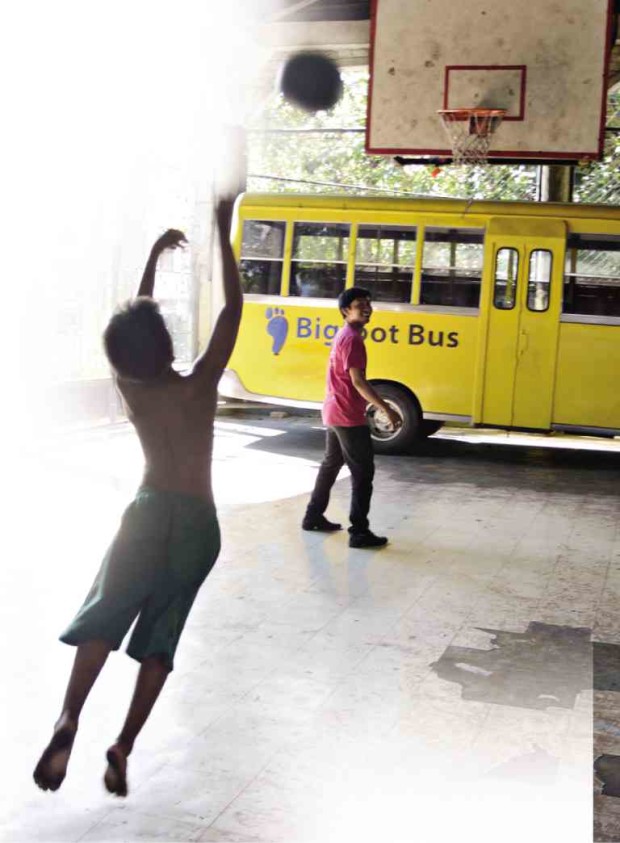
A WARD at Parian Drop-In Center, a shelter for homeless children in Cebu City, plays basketball with Stephen Dano (in red shirt), himself a former juvenile delinquent who was able to overcome drug addiction. CHRISTIAN MANINGO/CEBU DAILY NEWS
Stephen Dano lived the life of a juvenile delinquent.
At 10, he was already exposed to illegal drugs, including “shabu” (methamphetamine hydrochloride) and injectable substances. He lived with his friends on the streets and was involved in petty crimes.
But a nongovernment organization (NGO) saved Dano from what could have been a life of crime.
Now, at 23, Dano is a third year college education student and works as a facilitator for a mobile school program run by the Justice, Peace and Integrity of Creation (JPIC) Integrated Development Center Inc., an NGO that works with street children.
Dano recalled that he was in Grade 4 when he quit school because his parents could not afford the education of seven children.
His father was a construction worker while his mother had to close a small roadside eatery beside their house in Barangay Quiot in Cebu City to take care of his younger siblings
“I had to stop studying. At first, I really wanted to work and help my parents so I could someday continue my education,” said Dano.
He tried odd jobs—from collecting garbage for his neighbors and nearby establishments to selling candies and cigarettes, which earned him a few pesos a day.
Then he met new friends who introduced him to the world of drugs.
First, he was taught how to smoke and later, to sniff solvent. It slowly progressed to stronger substances—marijuana, shabu and injectable drugs.
“Sometimes when I didn’t have money, I would just buy cheap drugs, like amoxicillin, and drink lots of these just to get high. Sometimes, I would sniff gasoline,” said Dano.
He left home and eventually got involved in petty crimes. He had been in and out of detention as the Juvenile Justice Law, which prohibits jailing minors, had not been enacted at that time.
He lived this way for seven years.
Then one of his friends invited him to a center for street children in Barangay Parian in Cebu City.
“I thought why not? At least I could rest, I had shelter and I had food,” he said.
He didn’t want to go home because his parents didn’t have enough money to feed all his siblings.
Since he was already 16 at that time, Dano was referred to the Cebu City Community Scouts Center, an NGO that shelters orphaned and abandoned boys.
Little did Dano realize that this was where his rehabilitation would begin.
Cleansing his body of illegal substances was not easy for Dano who had to endure a withdrawal syndrome. He had to sneak out a few times to smoke and take drugs.
But the programs in the center slowly changed Dano.
“I realized [through these programs] that it was nice to be a child. I wasn’t able to experience this before,” Dano said.
Peer discussions helped inform him about current social issues, like child pornography, human trafficking and illegal drugs, among others.
In the six years that he stayed at the center, Dano was able to catch up on his education.
Through the Advance Learning System (ALS), Dano was able to get past Grade 6 and high school by passing all his exams.
He is now a third year education student at the Asian College of Technology (ACT). He partly pays his tuition from the salary he gets at JPIC as a social worker. He also serves as facilitator for its mobile school program.
Dano’s training enabled him to view his past as part of life’s trials and accept who he is now.
“Only then are we able to look forward to the future,” he said.
He also returned to the family’s home in Barangay Quiot.
Dano said his dark past became an asset for his current job as a social worker.
“I remember that I was once one of these street children,” he said. “I was like this before. I can understand them more because I went through all of these. I am more patient now. It gives me hope that they can change because I did,” he said.

